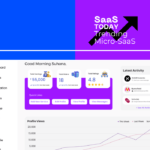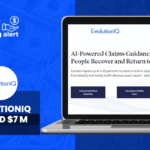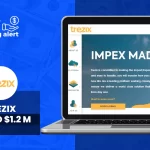The Indian B2B SaaS companies are optimistic about its growth prospects for 2023, with 8 out of 10 CXOs targeting Annual Recurring Revenue (ARR) growth of over 50%. This bullish outlook is driven by the industry’s focus on building and scaling capital-efficient businesses, as revealed in a report titled “Bellwethers of Indian SaaS”.
A recent report by Ernst & Young, in collaboration with Upekkha Value SaaS Accelerator, has revealed that the Indian B2B SaaS industry remains optimistic about its growth prospects in 2023, despite the recessionary trends observed in the past year. The report highlights the capital efficiency of the Indian SaaS sector, which is reflected in its low burn multiple. Specifically, 80% of Indian SaaS companies have a burn multiple of under 1.5x, which is significantly lower than the globally accepted burn multiple of 2-3x for companies with $1 million to $100 million Annual Recurring Revenue (ARR) in the growth stage.
As per Kamalanand Nithianandan, partner at EY India’s Business Consulting, the Indian B2B SaaS industry’s capital efficiency is about twice that of its global peers, positioning it well for the transition from “growth at all costs” to “profitable growth.”
The report titled “Bellwethers of Indian SaaS” reveals that the Indian B2B SaaS industry’s growth outlook is complemented by a focus on financial and operational prudence to build and scale capital-efficient businesses. According to the report, four out of ten Indian B2B SaaS CXOs aim to achieve over 100% Annual Recurring Revenue (ARR) growth, while eight out of ten CXOs are targeting above 50% ARR growth in 2023, with companies in the AI, HCM, fintech, CRM, and CDP segments leading the ultra-growth charge. The report also forecasts a bullish funding scenario for Indian SaaS companies, driven by an economic recovery in the second half of 2023 and the availability of dry powder within the SaaS-focused Indian VC/PE ecosystem.
The report suggests that this presents an opportunity for profitable Indian SaaS companies to raise capital at favorable terms and accelerate their growth. However, access to equity funding is constrained by rising inflation rates, making convertible notes and other alternative funding instruments more attractive. The report highlights product innovation, pricing changes, and partner-led expansion as top strategic priorities for 60% of company CXOs. Delayed customer closure cycles and sales inefficiency are cited as the top challenges inhibiting growth for over 51% and 41% of CXOs, respectively. While hiring and retention remain significant challenges, CXOs are also emphasizing the importance of reskilling and training to mitigate the talent shortage risk.
Key Takeaways
- Indian SaaS growth is capital efficient by default (burn multiple < 1.5x)
• 8 out of 10 Indian SaaS companies have a burn multiple of < 1.5x proving financial discipline at the core of business growth
• 8 out of 10 companies with ARR > US$10 million have a burn multiple under 1.5x retaining capital efficiency even at growth stages - India B2B SaaS projects bullish growth for 2023 despite troubling macro-economic trends
• 4 out of 10 CXOs target over 100% growth (ultra growth)
• 8 out of 10 CXOs target above 50% ARR growth (hyper growth) - 1 out of 3 Indian SaaS companies is ultra or hyper-growth with a very low burn
• 35% of the companies surveyed are targeting ultra (>100% ) or hyper (>50%+) ARR growth and have a very low burn multiple (<1x) - Indian SaaS largely unmoved by recessionary trends
• 2 out of every 3 companies reported improvement in key performance metrics e.g., net dollar retention rate (NDRR), customer lifetime value (CLTV) and payback period
Report by:

You can download the report from here










